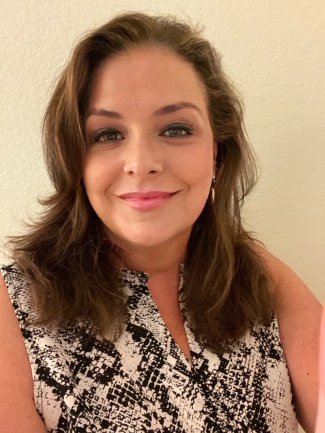ACC talks Hispanic Heritage Month with Susan Thomason
Throughout Hispanic Heritage Month, Austin Community College District (ACC) asks influential and accomplished faculty and staff to discuss what Hispanic Heritage Month means to them and their advice for Hispanic/Latinx students.
 Dr. Susan (Susy) Thomason started at ACC in September 2000 as the Director of Instructional Technology Training for faculty. Since then, she has had five titles, her current position being the associate vice president of Instructional Services and the Teaching and Learning Excellence Division (TLED).
Dr. Susan (Susy) Thomason started at ACC in September 2000 as the Director of Instructional Technology Training for faculty. Since then, she has had five titles, her current position being the associate vice president of Instructional Services and the Teaching and Learning Excellence Division (TLED).
Why is it important to celebrate Hispanic Heritage Month? How do you celebrate your heritage?
As we live in the melting pot that is the U.S., it is important to recognize that the diversity of our citizens is what makes this country such a wonderful place to live. By no means perfect, but a place where we can exercise our rights and freedoms to reach our full potential and our goals. The beauty of our American Culture is that so many cultures make up how it is defined today — our language includes words of foreign origin, our cuisine is a mix of many others from around the world, and even our economy is based on the global links across the world that provide goods and services. It is important to celebrate our Hispanic Heritage to pass on to future generations and ensure that the roots of these customs, history, arts, and rich culture are remembered and celebrated.
Our family's way of celebrating involves attending and participating in festivals, special meals, parties, dancing, and reflecting on our past.
What advice would you give to our Hispanic/Latinx students?
Your culture is one of the most beautiful parts of who you are and makes you unique in some ways but also part of a community. Make every effort to (1) connect with your elders to learn the stories of your past and of your heritage, (2) learn and keep the language as an additional skill enabling you to expand your personal and professional links, and (3) bring your experiences and your culture to the classroom and to the extracurricular activities you get involved with while at ACC. Other students will benefit and learn from your experiences, and this awareness will help create more inclusive and equitable learning spaces for everyone.
What is your biggest inspiration?
My mother and father have always been my greatest inspiration. My father was originally from the northeast United States and had embraced Latino culture fully when he met my mother in Panama many years ago. As an interracial and intercultural couple, they traveled the world always holding the principles of compassion and grace at heart, valuing the uniqueness of each person they met, and working to serve, to give, and to love — because these things would help make a better future for all. They were my heroes and are still to this day.
What is your proudest achievement?
Two things fall into this category:
- I am proud of my two creative, loving, resilient, and wise teenage daughters whom I learn from every day. I try to ensure they stay connected to our Hispanic roots and they have a perspective on life and the world that diversity is beautiful and that in each of our differences there are common links to our humanity.
- The second proudest achievement is the work we have undertaken in TLED to improve the services, resources, and opportunities available to faculty, staff, and students through each of our departments. We have been and continue to be a key player in equity-focused student success initiatives that ensure all students can pursue their passions and meet their goals for a better future.
How do you foster an inclusive environment?
Inclusive environments are fostered through education and engagement. Uncertainty is part of our life experience and often based on what we don't know. This fear of the unknown can drive us to take on skewed perspectives, make assumptions, or develop biases. For this reason, educational institutions play a key role in supporting inclusive environments both internally and externally as students graduate and enter the workforce or have a changed perspective in their current work. Broad and diverse engagement is also critical, as it provides firsthand contact with people of all backgrounds and cultures, and their stories help us see the many ways we all share the same needs for purpose and peace.
View all ACC Hispanic Heritage Month profiles here >